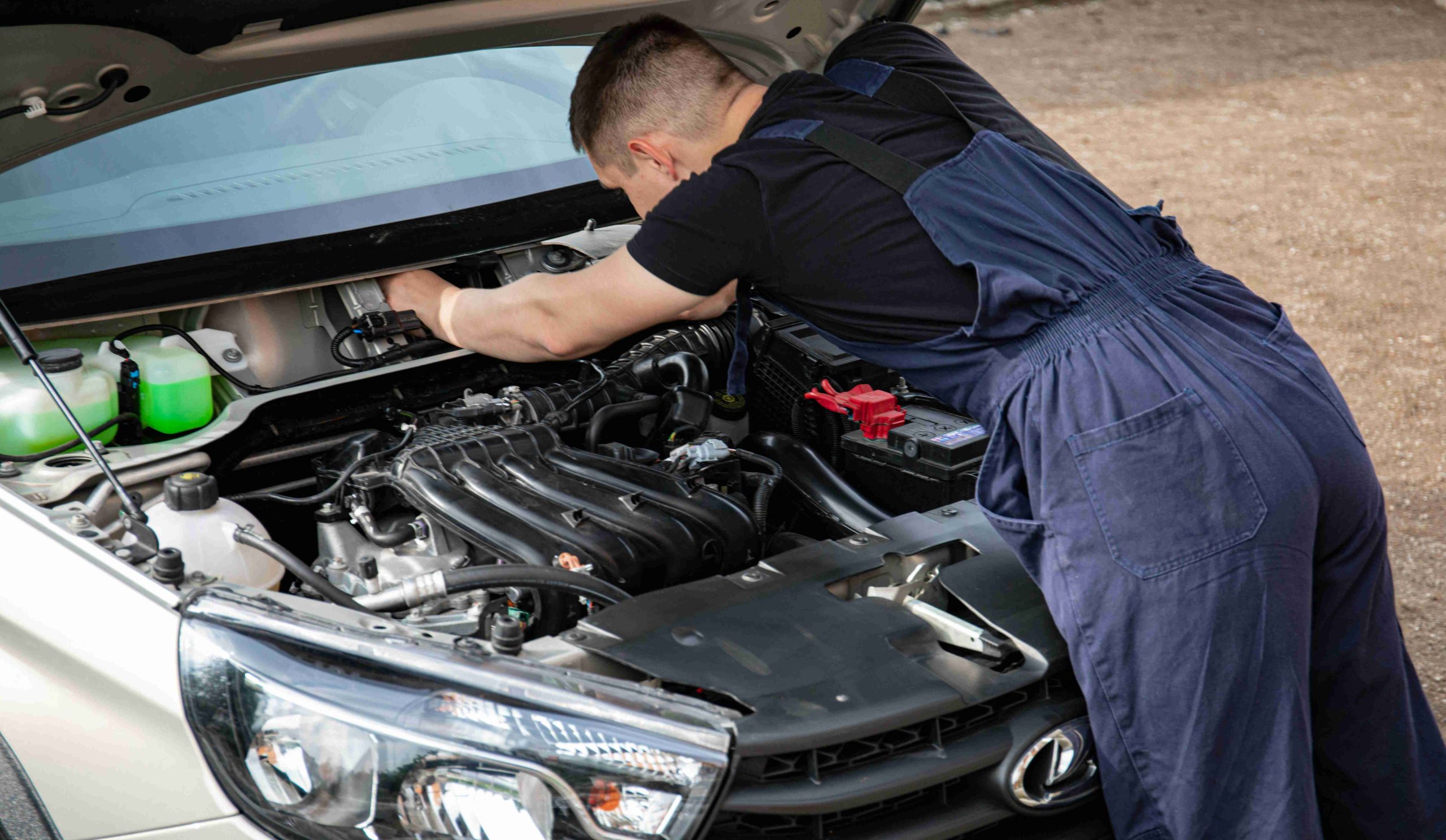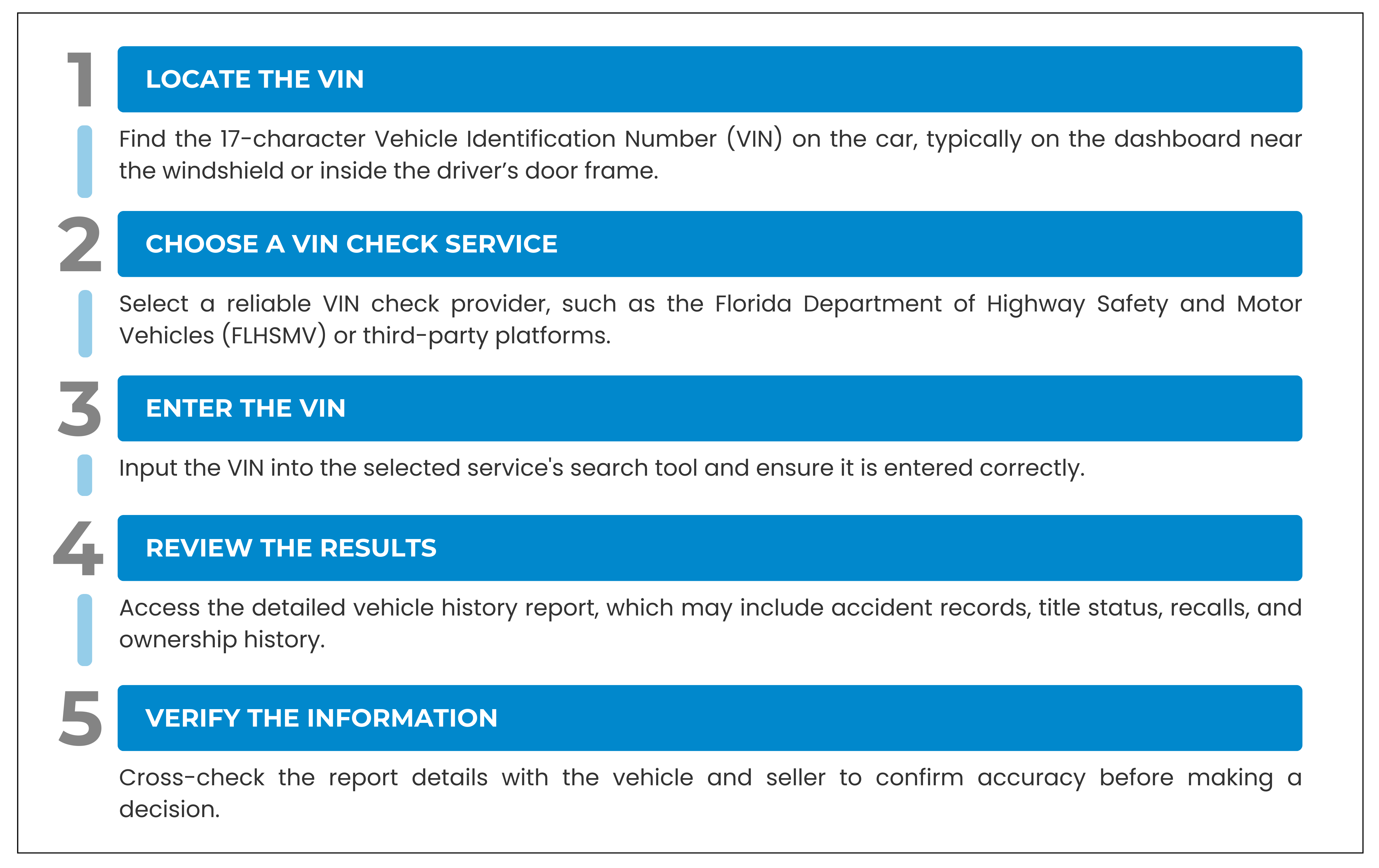
Buying a car in Florida? You’re likely excited to hit the sunny highways but ensure the car meets Florida’s strict safety standards first. Florida has specific regulations in place to make sure every vehicle is not only safe for the road but also environmentally sound. To make this process smoother, using the state of Florida vin check is a game-changer. It provides key details about a vehicle’s history, safety, emissions compliance, and potential performance issues.
Don’t skip this step—it’s your ticket to peace of mind on the road!
Florida’s Vehicle Inspection Requirements
Unlike many other states, Florida does not require regular vehicle safety or emissions inspections for most vehicles. However, there are still key instances when a vehicle might need to meet specific standards or undergo checks.
- Emissions Standards: Some Florida counties, like Miami-Dade and Broward, may require emissions tests for specific vehicle types. This ensures that vehicles are not emitting harmful pollutants and are operating efficiently.
- Safety Inspections: Florida does not require periodic safety inspections. However, it’s still important for vehicle owners to ensure that their car meets safety requirements, such as functional brakes, lights, seatbelts, and tires.
- Inspection for Vehicles Registered in Other States: Vehicles from other states may require inspections to meet Florida’s title and registration requirements. Verify the vehicle’s VIN and ensure modifications comply with Florida vehicle laws.
- State-Specific Modifications: Vehicle modifications like tinted windows or custom exhausts may require inspection for compliance with Florida regulations. These changes must follow Florida Department of Highway Safety and Motor Vehicles (DHSMV) guidelines.
- Special Inspection for Salvage or Rebuilt Vehicles: Salvage or rebuilt vehicles must pass a Florida Highway Patrol (FHP) or authorized inspection before registration.
- Inspection for Commercial Vehicles: While regular inspections for passenger vehicles are not required, commercial vehicles, such as trucks and buses, are subject to inspections to ensure they meet federal and state safety standards. These inspections are typically done through the Department of Transportation or authorized service providers.
The Role of VIN Checks in Compliance
A free Florida vehicle VIN check plays a crucial role in ensuring that your vehicle adheres to the state’s safety and emissions standards. The 17-character VIN code, which is unique to each vehicle, provides a detailed history, including information about:
- Previous Accidents or Damage: A free VIN check can reveal if a car has been in accidents that may have compromised its structural integrity or safety features.
- Title History: A free Florida VIN check reveals if a vehicle has a clean title, salvage history, or total loss declaration.
- Sales History: Multiple owners in quick succession may indicate potential issues.
- Vehicle Specifications: The VIN can also provide information about the vehicle’s original specifications, including engine type, trim level, transmission, and other factory-installed options, helping to verify if the car is equipped as advertised.
- Emissions History: In regions where emissions tests are required, a Florida VIN number check can provide information about the vehicle’s emissions compliance, ensuring that the car meets Florida’s environmental regulations.
- Odometer Readings: A VIN number check helps verify the accuracy of the vehicle’s mileage, alerting you to potential odometer fraud or discrepancies that could affect the car’s value and longevity.
- Recalls and Safety Issues: Vehicles often face recalls due to safety defects. A free VIN check reveals any open recalls, helping prevent issues.
- Flood or Fire Damage: Some VIN checks will also identify if the vehicle has been involved in a natural disaster like flooding or fire, which can severely impact a car’s performance and safety.
- Theft Status: It can also inform you if the vehicle has been reported as stolen, ensuring that you do not unknowingly purchase a stolen vehicle.
- Lien History: In some cases, a VIN check can identify if there are any outstanding liens on the vehicle, potentially complicating the transfer of ownership.
Running a Florida VIN check offers more than just confirming the vehicle meets the state’s safety and emissions standards. It provides you with crucial insights into the vehicle’s history, empowering you to make a well-informed decision before making a purchase.
How to Perform a VIN Check in Florida

Performing a VIN check is quick, easy, and essential for any used car buyer. Many online services offer free VIN checks in Florida, allowing you to access detailed vehicle reports. These reports provide details on sales, accident history, and compliance with safety and emissions standards, aiding assessment.
To perform a VIN check, you simply need to enter the VIN into an online tool and wait for the detailed report. It’s a fast and effective way to ensure that the vehicle you are purchasing is safe, legally compliant, and free from any hidden issues.
Final Word
Though Florida doesn’t mandate regular vehicle inspections, ensuring your car meets safety and emissions standards is still crucial. A VIN search tool plays a key role in this by offering vital insights into your vehicle’s history, safety record, and compliance with Florida’s regulations. Whether you’re purchasing a used car or simply want to confirm your vehicle is up to standard, checking the VIN can help you avoid costly repairs and unforeseen problems in the future.
Make sure to use a free vehicle VIN check before finalizing your purchase to ensure you’re driving a safe, compliant, and efficient vehicle.